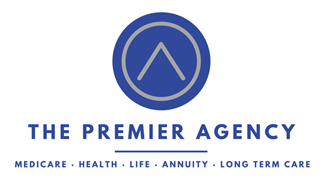Are you a Medicare professional in Arizona striving to navigate the complex landscape of compliance and ethics? This article explores key regulations, common challenges, and effective strategies for maintaining ethical standards in Arizona’s Medicare careers. Learn how to enhance your compliance competency, understand the role of compliance officers, and implement a hybrid strategy that combines technology and equal opportunity practices. By the end, you’ll have practical insights to excel as a compliant and ethical Medicare analyst in Arizona’s healthcare sector.
Key Takeaways
- Compliance and ethics are crucial for Medicare careers in Arizona to manage risk and ensure ethical practices
- Federal and state regulations govern Medicare practices, requiring ongoing education and adaptability from professionals
- Professionals face challenges in billing, coding, patient privacy, and fraud prevention, demanding vigilance and specialized skills
- Fostering a culture of compliance involves clear policies, regular training, and open communication within organizations
- Continuing education and certifications are essential for maintaining compliance and ethics competency in Medicare careers
Understanding the Importance of Compliance and Ethics in Arizona’s Medicare Careers

Compliance and ethics form the cornerstone of Medicare careers in Arizona. This section explores the definition of these concepts in the Medicare context, their significance for professionals, and the legal ramifications of non-compliance. Understanding these aspects helps manage risk and ensures ethical practices, impacting factors like salary and job opportunities in cities such as Atlanta.
Defining Compliance and Ethics in the Medicare Context
Compliance and ethics in the Medicare context refer to adherence to legal regulations and moral principles in the healthcare insurance industry. These concepts encompass proper coding practices, customer service standards, and project management within insurance companies. Arizona’s Medicare professionals must understand and apply these principles to ensure ethical conduct, maintain customer trust, and avoid legal issues.
The Significance of Ethical Practices for Medicare Professionals
Ethical practices hold paramount importance for Medicare professionals in Arizona. These practices ensure quality management in healthcare delivery, fostering trust between providers and beneficiaries. Professionals who prioritize ethics in their work contribute to the overall integrity of the United States healthcare system, enhancing employment opportunities and career growth. Continuous research and feedback mechanisms help maintain high ethical standards, benefiting the industry and the public it serves.
Legal Consequences of Non-Compliance in Arizona
Non-compliance with Medicare regulations in Arizona can lead to severe legal consequences. Professionals violating CMS guidelines may face fines, license revocation, or criminal charges. Remote work arrangements do not exempt individuals from adhering to the code of conduct and compliance standards. Proper accounting practices and documentation are crucial to avoid legal issues. The following table outlines potential penalties for non-compliance:
Key Regulations Governing Medicare Professionals in Arizona

Medicare professionals in Arizona must navigate complex regulations. This section examines federal Medicare rules, Arizona-specific laws, and recent regulatory changes. Understanding these regulations is crucial for maintaining a robust compliance program, conducting internal audits, and ensuring proper payment practices in Arizona’s healthcare compliance landscape.
Federal Medicare Regulations Overview
Federal Medicare regulations form the foundation for Medicare professionals in Arizona. These regulations, set by the Centers for Medicare & Medicaid Services (CMS), govern various aspects of healthcare delivery and reimbursement. Medicare professionals must possess extensive knowledge of these regulations to ensure compliance, manage budgets effectively, and provide quality care experiences for beneficiaries. The regulatory framework covers areas such as eligibility, benefits, provider enrollment, and claims processing, requiring ongoing education and adaptability from Medicare corps members.
Arizona State Laws Affecting Medicare Providers
Arizona state laws significantly impact Medicare providers, complementing federal regulations. These laws govern various aspects of health care administration, including business practices, contract requirements, and organizational structures. Medicare professionals must navigate both federal and state legal frameworks to ensure compliance in their organizations. Understanding Arizona’s specific health laws is crucial for effective management and maintaining ethical standards in Medicare-related businesses.
Adapting to Recent Regulatory Changes
Medicare professionals in Arizona must adapt to recent regulatory changes to maintain compliance and ethical standards. These changes often involve updated background check requirements, patient data protection measures, and ethical guidelines for health system specialists. Staying informed about these modifications ensures professionals can effectively serve patients while adhering to the evolving healthcare landscape. The following table outlines key areas of recent regulatory changes:
Common Compliance Challenges in Arizona’s Medicare Sector

Medicare professionals in Arizona face several compliance challenges. These include navigating complex billing and coding requirements, which demand precise skills from coding auditors. Upholding patient privacy and HIPAA standards is crucial for all staff, from general administrators to pharmacy technicians. Identifying and preventing fraud and abuse requires vigilance and understanding finance and regulatory frameworks.
Navigating Complex Billing and Coding Requirements
Medicare professionals in Arizona face complex billing and coding requirements, demanding precision and attention to detail. Compliance managers must ensure that staff members, regardless of sexual orientation, receive proper training to navigate these intricacies. Innovation in coding systems and policies helps streamline processes, while regular volunteering for coding audits enhances accuracy and compliance.
Upholding Patient Privacy and HIPAA Standards
Upholding patient privacy and HIPAA standards presents a significant challenge for Medicare professionals in Arizona’s healthcare sector. Chief compliance officers and leadership teams must implement robust quality assurance measures to protect sensitive patient information. Veterans in the field emphasize the importance of comprehensive staff training and regular audits to ensure compliance with privacy regulations.
Identifying and Preventing Fraud and Abuse
Identifying and preventing fraud and abuse in Arizona’s Medicare sector requires vigilance from every healthcare industry professional. Disability managers and customer service representatives are crucial in spotting potential fraudulent activities. Regular training and robust reporting systems help staff recognize red flags and protect the integrity of Medicare services.
Strategies for Maintaining Ethical Standards in Medicare Roles

Maintaining ethical standards in Medicare roles is crucial for regulatory compliance and workforce integrity. This section explores strategies for promoting ethical decision-making, fostering a culture of compliance, and addressing ethical issues. These approaches help Medicare professionals in Arizona uphold community trust and ensure proper health insurance practices within the Medicaid system.
Promoting Ethical Decision-Making
Promoting ethical decision-making in Arizona’s Medicare careers requires a multifaceted approach involving ethics and compliance training, regular audits, and human resources support. Organizations should provide ongoing education on ethical standards and reimbursement policies to ensure staff members make informed decisions. By implementing a robust audit system and fostering an environment where employees feel comfortable reporting concerns, Medicare professionals can maintain high ethical standards and protect the integrity of the healthcare system.
Fostering a Culture of Compliance
Fostering a culture of compliance in Arizona’s Medicare careers involves creating an environment where ethical behavior is the norm. Organizations can achieve this by establishing clear policies, providing regular training, and encouraging open communication. Physicians are crucial in setting the tone for compliance, as their expertise and leadership influence the entire team. Preferred practices include implementing robust reporting systems and recognizing employees who consistently demonstrate high service quality and ethical conduct. By maintaining contact with compliance experts and staying updated on industry standards, Medicare professionals can ensure a strong culture of compliance.
Addressing and Reporting Ethical Issues
Addressing and reporting ethical issues is crucial in Arizona’s Medicare careers. The Office of Inspector General provides guidelines for reporting compliance concerns, emphasizing the importance of a culture encouraging open communication. Medicare professionals, including those in nursing and marketing roles, must be vigilant in identifying and reporting ethical breaches. Effective reporting systems and clear protocols ensure that sensitive information is handled appropriately, maintaining the integrity of Medicare operations. Key steps in addressing ethical issues include:
- Identifying potential violations
- Documenting concerns thoroughly
- Reporting to appropriate channels
- Protecting whistleblowers
- Following up on reported issues
Professional Development for Compliance and Ethics Competency

Professional development is vital for Medicare professionals in Arizona to maintain compliance and ethics competency. This section explores continuing education opportunities, compliance certifications, and strategies for staying informed on regulatory updates. These areas enhance skills for compliance auditors and other Medicare professionals, ensuring confidentiality and improving recruitment prospects in the field.
Accessing Continuing Education Opportunities in Arizona
Medicare professionals in Arizona can access various continuing education opportunities to enhance their compliance and ethics competency. The Arizona Department of Health Services offers courses on healthcare integrity and regulatory compliance. National organizations like the Health Care Compliance Association also provide online and in-person training programs. These opportunities help professionals stay current with industry standards and maintain their certification:
- Local workshops on Medicare regulations
- Webinars on ethical decision-making in healthcare
- Conferences focused on compliance best practices
- Online courses on HIPAA and patient privacy
Pursuing Compliance Certifications for Medicare Professionals
Medicare professionals in Arizona can pursue various compliance certifications to enhance their expertise and credibility. The Certified in Healthcare Compliance (CHC) credential, offered by the Health Care Compliance Association, is widely recognized in the field. Other relevant certifications include the Certified Professional Coder (CPC) and Certified Professional Compliance Officer (CPCO). These certifications demonstrate a professional’s commitment to upholding ethical standards and regulatory compliance in Medicare careers:
Staying Informed on Regulatory Updates
Medicare professionals in Arizona must stay informed on regulatory updates to maintain compliance and ethical standards. They can achieve this by subscribing to newsletters from the Centers for Medicare & Medicaid Services, attending industry conferences, and participating in professional associations. Regularly reviewing official government websites and industry publications helps professionals stay current with the latest changes in Medicare regulations and ethical guidelines.
The Role of Compliance Officers in Arizona’s Medicare Organizations

Compliance officers play a vital role in Arizona’s Medicare organizations. This section explores their responsibilities, collaboration strategies, and implementation of effective compliance programs. Understanding these aspects helps Medicare professionals work effectively with compliance officers to ensure ethical practices and regulatory adherence in healthcare settings.
Understanding the Responsibilities of a Compliance Officer
Compliance officers in Arizona’s Medicare organizations shoulder critical responsibilities. They develop and implement comprehensive compliance programs, conduct regular risk assessments, and oversee internal audits to ensure adherence to federal and state regulations. These professionals also lead training initiatives on ethical practices and regulatory requirements for all staff members. Compliance officers serve as the primary point of contact for regulatory inquiries and investigations, working closely with legal counsel to address any compliance issues promptly and effectively.
Collaborating With Compliance Officers for Better Outcomes
Collaboration with compliance officers is crucial for achieving better outcomes in Arizona’s Medicare organizations. Staff members should actively engage with compliance officers, sharing insights and concerns to help identify potential risks. Regular meetings and open communication channels enable teams to address compliance issues proactively. This collaborative approach enhances the overall effectiveness of compliance programs and fosters a culture of ethical behavior throughout the organization:
Implementing Effective Compliance Programs in Healthcare Settings
Implementing effective compliance programs in healthcare settings requires a systematic approach. Compliance officers in Arizona’s Medicare organizations develop comprehensive policies, conduct regular staff training, and establish clear reporting mechanisms. They use data analytics to identify potential compliance risks and promptly implement corrective actions. These programs often include periodic audits, robust documentation practices, and ongoing monitoring to ensure adherence to Medicare regulations and ethical standards.
Conclusion
Compliance and ethics are fundamental pillars in Arizona’s Medicare careers, ensuring healthcare services’ integrity and protecting providers and beneficiaries. Professionals must navigate complex federal and state regulations, address billing, privacy, and fraud prevention challenges, and continuously update their knowledge through education and certifications. Compliance officers play a crucial role in implementing effective programs, fostering a culture of ethical behavior, and collaborating with staff to maintain high standards. By prioritizing compliance and ethics, Medicare professionals in Arizona uphold the community’s trust, mitigate legal risks, and contribute to the overall quality and sustainability of the healthcare system.


Recent Comments